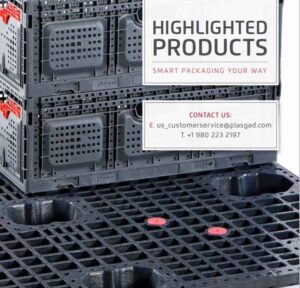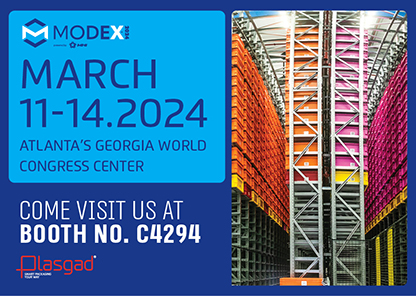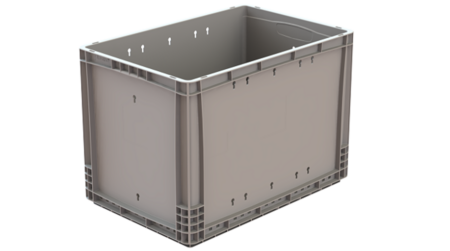
Raw Materials
We use the best, most durable raw materials. We believe that when the foundations are solid, the entire building will remain stable in the long term. The same goes for the crates we produce for you. By using high quality raw materials we ensure that your products remain strong and functional in the long term, even under extreme weather conditions or when used massively for air, maritime or land freight.
To ensure the long-term durability and integrity of our products, we use four main raw materials:
Polypropylene
Polypropylene is a thermoplastic material, which is characterized by excellent durability under extreme temperatures, from minus 18 to 80 degrees Celsius. This means that your crates can withstand cooling, heating or any type of extreme weather.
Polypropylene is also highly resistant to variations in humidity levels, as well as to blows that may occur during shipping and packaging, which makes it an ideal raw material for industrial uses.
Our main use of Polypropylene is in manufacturing industrial crates with solid walls, folding crates and extremely sturdy industrial pallets.
Polyethylene
Polyethylene is another thermoplastic material. It is lightweight and very popular due to its excellent resistance to chemicals, its relatively low cost and its wide range of applications.
Polyethylene can withstand very low temperatures, from minus 76 to 58 degrees Celsius. In higher temperatures it might soften and lose its resistance, but it remains safe and does not release any chemicals to the air.
Polyethylene is mainly used for manufacturing crates for fruits, vegetables and beer, as well as for industrial pallets that need to be stored in particularly low temperatures.
Polystyrene
Polystyrene is another thermoplastic material characterized by high sturdiness. Although the material is indeed plastic, its characteristics are similar to those of metal.
Polystyrene has various uses. We use it to manufacture storage bins, tilt bins and sturdy resistant tubs for various uses.
Ancillary materials
In order to create the best materials for our products, we also use a number of ancillary raw materials:
Polyamide
Polyamide refers to different types of the common nylon. Polyamide is used to manufacture parts that are used in our products, such as special pins and bars used to assemble boxes, crates and other products. These parts are essential to ensure the durability and sturdiness of the end product.
POM
This is a thermoplastic material highly resistant to extreme temperatures and temperature changes. It is used in those of our products that require both sturdiness and elasticity.
Polycarbonate
This is a transparent material that is often used instead of glass. It is extremely sturdy and is commonly used in products that need to be both sturdy and transparent.
ABS
A group of materials that are particularly easy to process, characterized by dimensional stability, good electrical insulation, excellent resistance to chemicals and high sturdiness, among other advantages. These materials are mostly used to produce sturdy products that are either transparent or opaque and have an aesthetic surface.
Uncompromising quality
All our raw materials are of the highest quality, allowing us to offer our customers the best possible products.
Certification by the Standards Institution of Israel
Plasgad renews its safety certification with the Standards Institute of Israel on an annual basis, so we can always guarantee to our customers that they have chosen the best, safest and most durable products. Our quality and safety measures include annual quality checks of our products, meeting various health and safety standards, and more.
Flame retardants
Many industrial products are exposed to sparks and high temperatures, and are therefore at risk of burning. During our manufacturing process we add varying levels of flame retardants, based on the customer’s needs. Flame retardants prevent fire from spreading and destroying the crate and its contents, and ensure that any fire can be extinguished quickly by simply taking the product away from the source of fire.
Electrical conductivity
Static electricity tends to accumulate on plastic products as a result of friction and airflow. When electronic components are stored and shipped in plastic containers, they might be damaged by discharge of static electricity. We offer storage products with electrical conductivity, which means that static electricity will accumulate on the walls of the product rather than in its contents. It can then be easily discharged without damaging electronic components.
Using additives
We use various additives according to our customers’ needs, to improve our products’ durability and strength. Among those are:
Glass Fibers – adding glass fibers to products helps improve their sturdiness.
Calcium Carbonate – these fillers are added to raw materials to improve their rigidity and density.
Protection against UV radiation
Extended exposure to sunlight and UV radiation may degrade the mechanical characteristics of plastic products. We use an additive that protects against UV radiation, and as a result, our products are particularly durable and suitable for extreme weather conditions in Israel and around the world.
No release of hazardous substances
Synthetic materials that undergo chemical processing can overtime release hazardous gases and substances under certain temperatures. We always use high quality materials that do not release any hazardous particles to the air, irrespective of the temperature and climatic conditions.



